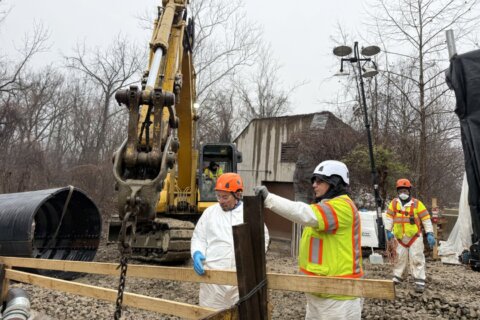EDITOR’S NOTE: This story has been updated to clarify information on BusPatrol America.
WASHINGTON — The man behind a business that put stop-arm cameras in school buses from Texas to Maryland has pleaded guilty to fraud in a federal case that included bribery and conspiracy.
Robert Leonard, former CEO of Force Multiplier Solutions, a school bus camera company that had a contract with Montgomery County, Maryland schools, entered his guilty plea in Texas on Aug. 9.
According to the federal plea agreement, Leonard paid $450,000 in a bribe and kickback scheme involving a Dallas City Council member. Leonard also admitted to paying a Dallas County Schools Superintendent more than $3 million in bribes and kickback payments. In return, Leonard’s company, Force Multiplier Solutions, was promoted for contracts with school systems in Texas.
Montgomery County entered into an agreement with Force Multiplier Solutions two years ago. The deal eventually put an array of cameras in the entire fleet of Montgomery County school buses. In return, the revenues from violations by drivers who pass stopped school buses would be forwarded to Force Multiplier Solutions.
In June, Montgomery County School Superintendent Jack Smith wrote to the Montgomery County Council asking for $4.7 million in supplemental funds for the school bus safety system — a technology platform now owned by an independent group of Canadian investors who formed the company BusPatrol in 2017.
David Poirier, who previously consulted for Force Multiplier Solutions and is now president of BusPatrol America, said BPA is not just a name change, but a totally new company.
“It’s a brand-new company and has no connection with any of the previous ownership of Force Multiplier Solutions,” Poirier said. But a number of current BPA employees did work for Force Multiplier, and current addresses for BPA match previous addresses for Force Multiplier.
Poirier explains that offices that were home to the hardware and staff that is familiar with both the software and camera equipment were necessary to carry out the work of installing and maintaining the camera systems.
“There’s a lot of software, software development and electronics that are very sophisticated” said Poirier. “We did handpick some people that were very good from Force Multiplier’s company when they went out of business and we hired them because they had a lot of expertise,” Poirier said.
Poirier said Leonard’s actions, which he called “shady” and “crooked,” should not be a reflection on BPA or the current employees there. “We have great employees that are honest and hardworking and quite honestly deserve a lot of credit for what they do,” Poirier said.
When the school bus camera program was first presented to members of the Montgomery County Council’s public safety committee in 2016, several members questioned whether the deal, which would put the cameras in the school system’s fleet of buses free of charge, was “too good to be true” and whether the company’s business model was sustainable.
Council Member Marc Elrich was skeptical of the plan, which would funnel any revenues from tickets generated by drivers who violate the law that requires them to stop behind a school bus when the stop-arm is extended and children are getting on or off the bus.
Elrich, who chaired one of the council committees examining the Force Multiplier Solutions agreement in 2016 said at the time, “How do you know you got the best deal — or the right deal?” he asked of presenters at the meeting, which included Montgomery County Schools’ director of transportation and Richard Hetherington, manager of the police department’s automated traffic enforcement unit.
Under the agreement, the entire school fleet should be outfitted with the automated system by June of 2019.








